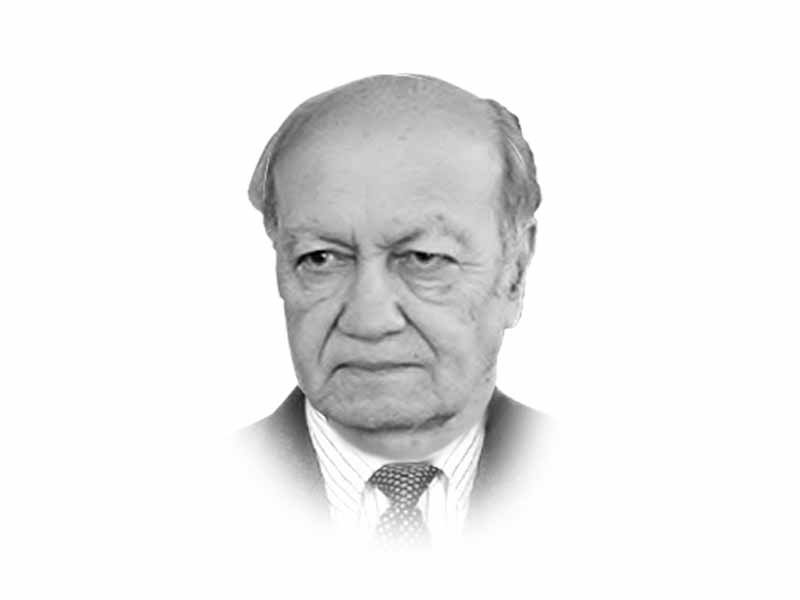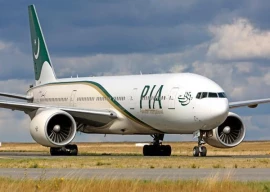
In a recent interview with senior editors of The New York Times, Prime Minister Imran Khan gave a succinct overview of the US-Pakistan relations and the state of play with Afghanistan and India. With the US in the final phase of withdrawal from Afghanistan and the Taliban further intensifying their attacks and capturing large territory, the power structure of Afghanistan is once again in a state of flux and shifting fast in favour of the Taliban. This development will impact the region significantly, creating a new set of challenges that could affect Pakistan adversely.
As the Afghan government is fast losing ground to the Taliban, to cover its failures it continues to scapegoat Pakistan and intensifies the rhetoric against it. The pressure from the US administration for Pakistan to do more in persuading the Taliban for seeking accommodation with the Afghan government is also increasing. This is despite the fact that there is a realisation that Pakistan has been pushing the Taliban leadership to show flexibility and has categorically stated that it would not accept a Taliban-imposed government. Pakistan’s leadership fears that this would only prolong the civil war as different factions in Afghanistan, such as the Hazaras, the erstwhile Northern Alliance, and segments of Afghans, including women that have received education and value freedom, are all vehemently opposed to it. There is a possibility that it could breathe fresh life into TTP to reassert itself and step up its militant attacks across the border and from within Pakistan. It is unlikely that Pakistan’s advice would be solicited by the Taliban leadership or the blame game would subside.
The Taliban takeover would have serious repercussions for Pakistan. The Biden administration would blame Pakistan for not pushing the Taliban enough, Afghan President Ashraf Ghani and other leaders would scapegoat the Pakistani military, although their influence would fade away having limited support and US prop not being enough to keep them in power. And Pakistan will have to practically close the Afghan border or restrict movement to prevent a heavy influx of refugees, and intrusion by TTP and other militant groups, until the situation stabilises. This obviously would have consequences on our economy and the security situation.
Moreover, the confrontation between the US and China is intensifying as President Biden accuses Beijing of engaging in malpractices to promote its trade. And there is a conscious effort by the US in collaboration with Western allies and Japan to counter China’s economic dominance. There is also a deliberate effort to delink the Chinese and American economies. It is possible that this may harm America more. Despite these apprehensions, the Biden administration is going ahead with penalising Chinese companies. Already, dozens of Chinese firms have been blacklisted for alleged wrongdoing and it is apparent that the list will keep expanding. This could have an adverse fallout on the global economy.
It serves China’s long-term strategic interests for it to keep advancing its trade and economic activities and opening its economy even if the Biden administration places all sorts of hurdles to invest or export to America. Any unfavourable impact on the Chinese economy, however, could affect its assistance and economic interaction on CPEC and Pakistan assistance related programmes.
In this confrontational environment, described as a new cold war, Pakistan will have to steer course with great finesse. As Imran Khan has said, we would like to have good relations with Washington while maintaining the strategic partnership with China. Although Pakistan has a history of balancing relations between the two countries in the past, the situation now is far more complex and the new US leadership is clearly side-stepping and deliberately ignoring Pakistan. What exactly are the expectations of President Biden and the new administration and what message it is giving is not very clear. In all probability it is Pakistan’s close proximity to China which is an issue with the US, as the rivalry between the two intensifies. This will not change, as Pakistan’s relationship with Beijing is on a sound foundation and has stood the test of time. China’s assistance to Pakistan has been consistent and as Khan mentioned in the recent interview to NYT, when the country was going through a difficult economic situation during and after the War on Terror, China’s support was a great help. Presently, CPEC has further strengthened the economic bonds. Besides, the greater the US indifference toward Pakistan the more it would be pushed closer to China. Pakistan’s links with Russia are also growing and the two countries have engaged in joint exercises and intelligence sharing, and there are possibilities of investment in the gas and oil sector.
Moreover, the US would like Pakistan to put greater pressure on the Taliban leadership to show flexibility in accommodating other political groups in the formation of the next government. In fact, Pakistan has done what it can to push the peace process forward, but with military victory in sight the Taliban are in no mood to reconcile.
PM Khan has gone to great lengths to engage with PM Narendra Modi but the latter’s intransigence and brutal policies in occupied Kashmir stand in the way of any forward movement.
Pakistan’s state of economy however remains weak and makes it very vulnerable to outside pressures, and needs international goodwill especially that of the US for continuation of the IMF programme. But despite these weaknesses Pakistan has been defending its core national interests.
It is not in Pakistan’s interest to be caught in the US-China rivalry, notwithstanding that India has clearly become a willing partner to counter China’s rise. Notwithstanding that the two-way trade in 2020 reached $87.6 billion between the two countries according to China’s General Administration of Customs. Somewhat down by more than 5%.
PM Khan’s remarks that “the world will greatly benefit if the two economic giants really got along and traded with each other”, seems that the phase of the relationship is regrettably a period of the past. We are at the cusp of a new cold war and for countries like Pakistan these are testing times.
Published in The Express Tribune, June 30th, 2021.
Like Opinion & Editorial on Facebook, follow @ETOpEd on Twitter to receive all updates on all our daily pieces.













COMMENTS
Comments are moderated and generally will be posted if they are on-topic and not abusive.
For more information, please see our Comments FAQ